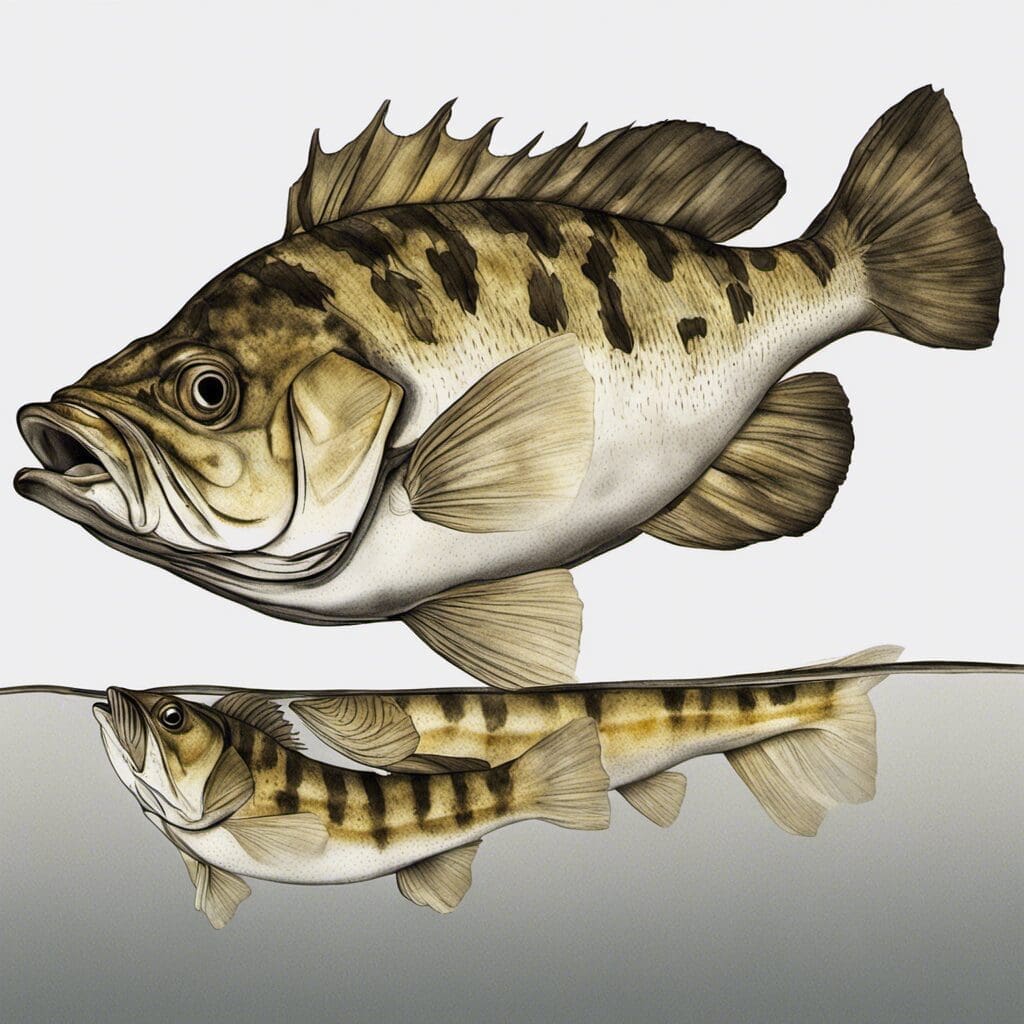Introduction
The Kelp Bass (Paralabrax clathratus), also known as Calico Bass, belongs to the family Serranidae which includes groupers and sea basses.
Conservation Status
Kelp Bass is currently listed as Least Concern by the International Union for Conservation of Nature. Efforts are underway to monitor and manage the species’ populations due to their popularity among recreational fishermen.
Statistics
| Statistic | Average | Range |
|---|---|---|
| Length | 14.5 inches | 12-28 inches |
| Weight | 1.5 lbs | 1-5 lbs |
| Average Lifespan | 34 years | N/A |
Distribution
The Kelp Bass is native to the eastern Pacific Ocean, predominantly in the coastal waters of California (USA) and Baja California (Mexico). They do not usually migrate but are known to move inshore during the spawning season.
Habitats
Kelp Bass are typically found in areas with rocky bottoms or kelp forests. They inhabit both brackish and marine waters, at depths ranging from 10 to 150 feet and can withstand a wide range of temperatures.
When and Where to See
Kelp Bass are most likely to be seen during the summer months when they move inshore to spawn. They are predominantly active during the day.
Best Fishing Locations
- Los Coronados Islands, Mexico
- Catalina Island, California
- San Clemente Island, California
- La Jolla, California
- Newport Beach, California
General Tips
The best way to locate Kelp Bass is to find kelp forests or rocky reefs where they like to hide.
How to Catch
Kelp Bass are known to be attracted to live bait like anchovies, mackerel, or squid. They can also be caught using lures that mimic these prey. Casting or trolling near kelp beds or rocky structures during daylight hours increases the chances of a successful catch.
Identification Guide
Kelp Bass have a compressed oval body, a large mouth, and are generally brownish in color with darker spots. They are often confused with the Barred Sand Bass, but can be differentiated by the lack of vertical bars on its body and the presence of a deeper body.
Culinary
Kelp Bass are considered good eating fish. Their meat is white, flaky, and has a mild taste. They are typically prepared by grilling or pan-frying. Some popular recipes include Kelp Bass Tacos and Grilled Kelp Bass with Lemon Butter.
Additional Information
Kelp Bass feeds on a variety of smaller fish and invertebrates. They become sexually mature at around 8-9 years of age. Their primary predators are larger fish and marine mammals.
References and Further Reading
- Animal Diversity Web
- California Science Center
- FishBase

